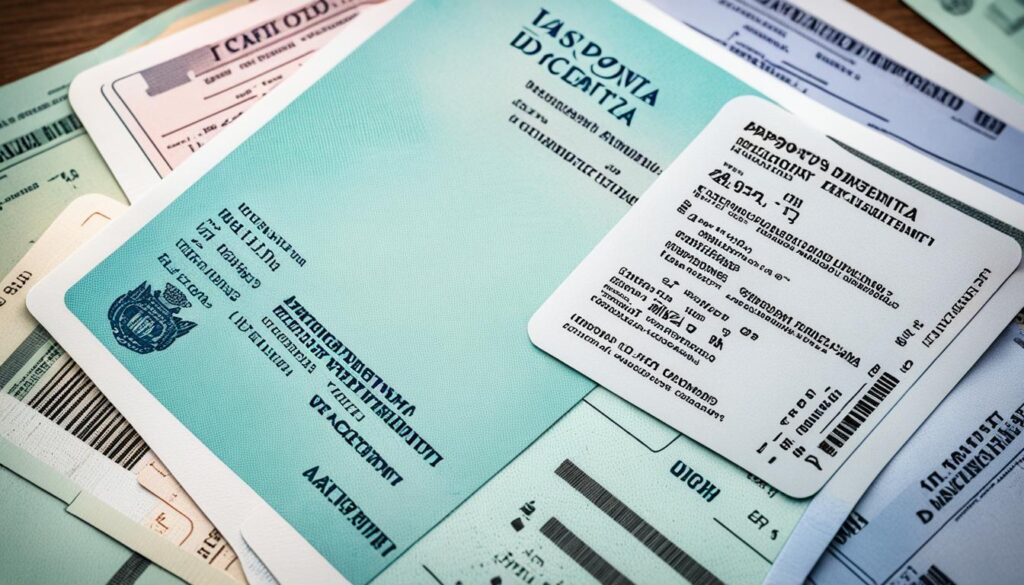Opening a bank account in Argentina is an essential financial milestone for individuals, especially for expats looking to navigate their financial landscape more effectively. In a country where the economy often experiences fluctuations, having a local account is invaluable in alleviating the challenges associated with currency exchanges from foreign accounts and high transaction fees. This local integration allows expatriates to manage funds smoothly in both Argentine pesos and U.S. dollars, significantly enhancing their day-to-day financial operations. Understanding how to open a bank account in Argentina entails a thorough grasp of local banking regulations, processes, and the variety of institutions available.
Maintaining a bank account further eases the complexities of financial transactions in Argentina, where state-owned banks dominate and foreign banks, like Citibank and HSBC, are diminishing in number1. By establishing a banking relationship, foreigners opening a bank account in Argentina can access essential services, such as online banking and seamless transactions, which are crucial in today’s fast-paced financial environment. Facilitating your financial experience in Argentina begins with preparing adequately for the banking process, taking into account the necessary documentation and requirements that may pertain to your individual situation. For a comprehensive look at the specifics of opening a bank account in Argentina, you can refer to this informative article.
Key Takeaways
- Having a local bank account simplifies financial transactions in Argentina.
- Documentation is crucial for foreigners opening a bank account in Argentina.
- Local accounts help avoid high fees associated with foreign bank transactions.
- Understanding the various types of banking services is essential for effective management.
- Most banks in the country have restrictions on foreign currency transactions.
Understanding the Benefits of Opening a Bank Account in Argentina
Opening a bank account in Argentina offers a wealth of advantages for both expats and locals. The most noticeable benefit is the convenience for expats in Argentina, allowing individuals to manage their money efficiently without relying on foreign accounts. Local bank accounts facilitate quick transactions, whether for paying bills or purchasing daily necessities, which is essential in a fast-paced environment. With a local account, expats can receive payments promptly, enhancing their financial stability and ease of living abroad.
Convenience for Expats and Locals
The benefits of a bank account in Argentina extend beyond accessibility. For instance, having a local account allows users to withdraw cash at ATMs without incurring excessive international transaction fees, which can be burdensome with offshore accounts. Many banks, such as Banco Nación and Banco Ciudad, boast a substantial number of branches, ensuring banking accessibility across urban and rural areas2. The financial landscape effectively supports digital transactions, with banks like HSBC providing user-friendly online platforms for money management3.
Reducing Transaction Fees
Another significant advantage is reducing banking fees in Argentina. With various savings accounts offering complimentary maintenance, users can avoid unnecessary charges, thereby enhancing their overall savings. For example, many accounts allow up to eight free ATM withdrawals a month, appealing to frequent users2. Notably, choosing an account designed for salaries or savings can help minimize fees associated with routine transactions and withdrawals, which often incur additional costs in foreign banking systems.
| Bank | Maintenance Fee | Key Features |
|---|---|---|
| Banco Nación | Free | Wide branch access, digital banking options |
| Banco Ciudad | Free | Local banking benefits, community-oriented services |
| HSBC | Approximately ARS 400 | Comprehensive online services, international transfers |
| BBVA | Free | Incentives like “El Libretón” for savings |
Bank Account Requirements in Argentina

When preparing to open a bank account in Argentina, it’s vital to understand the bank account requirements in Argentina. Many banks have specific conditions influencing the documentation required. For expats, presenting the correct paperwork is critical to ensure a smooth application process.
Necessary Documentation
To begin the process of opening a bank account, expats will need to gather essential documents. These typically include:
- Valid identification (passport is preferred).
- Proof of residence such as a recent utility bill.
- Tax Identification Number (CUIL or CUIT).
- Proof of employment or income, such as pay slips or bank statements.
Requirements may slightly vary between banks, so checking with individual institutions for specific needs is advisable to ensure compliance.
Proof of Income and Address
To fulfill the bank account requirements in Argentina, having proof of income and a confirmed address is essential. Most banks will require a minimum deposit to open an account. Additionally, documentation demonstrating legal residency is often necessary since many institutions impose this as a prerequisite. Expats should also be mindful of banking hours, which are typically limited from 10:00 a.m. to 3:00 p.m. on weekdays, making planning visits to the bank important1.
Understanding the documents needed for opening a bank account in Argentina is a key component to facilitating a successful banking experience. With the right preparation and attention to detail, managing finances while living in Argentina can become a streamlined process4.
Opening a Bank Account in Argentina: Steps to Follow
The process of opening a bank account in Argentina requires careful planning and execution. Understanding the essential steps to open a bank account in Argentina will help you navigate this often complex landscape. Below are the key points to consider.
Choosing the Right Bank
Selecting the appropriate bank is the first step. Research the various banks available in Argentina, such as Banco de la Nación Argentina and Banco Santander Río, both of which are popular for corporate accounts. You may want to focus on banks that cater specifically to expatriates, as they often provide tailored services that can make the transition smoother.
Preparing Required Documents
Before visiting the bank, ensure you have all necessary documents ready. Common requirements include legal documentation, proof of identity, proof of address, and a business plan that describes your intended activities. These documents are crucial for complying with regulations and facilitating the process of opening a bank account in Argentina.
Visiting the Bank and Application Process
Plan to visit the bank during their operating hours, which are typically from 10 AM to 3 PM. During your visit, be prepared to fill out an application form and provide the required documentation. Applicants should keep in mind that most banks may require an initial deposit that varies by institution. Patience is important, as English-speaking staff could be limited, making the application process more challenging.
By following these structured steps to open a bank account in Argentina, you are setting a solid foundation for your banking experience. Be sure to consult resources and guides for further details on the requirements and procedures involved, like those available here5.
Documents Needed for Opening a Bank Account in Argentina

When it comes to opening a bank account in Argentina, understanding the necessary documentation is essential for both residents and non-residents. Meeting the identification requirements in Argentina is critical as financial institutions strive to validate identity and occupation. Below are the key documents you will need.
Identification Requirements
For Argentine citizens, the primary identification requirement is the DNI (Documento Nacional de Identidad). Foreigners, on the other hand, must present a valid passport. Along with personal documents, it is important to note that applicants must also provide a Tax Identification, such as CUIL for employees or CUIT for business purposes, as this is essential in ensuring compliance with tax regulations6.
Tax Identification Number (CUIL/CUIT)
The Tax identification for bank accounts in Argentina encompasses the necessity for a CUIL or CUIT, which is crucial for immigrants aiming to establish a financial presence in the country. Those without a local DNI may face challenges when trying to obtain these tax identifiers, particularly if they are non-residents. Moreover, it is advisable for applicants to have a local phone number to streamline the online banking process, especially for foreigners looking to open an account online7.
| Document Type | Resident Requirements | Non-Resident Requirements |
|---|---|---|
| Identification | DNI | Valid Passport |
| Tax Identification Number | CUIL | CUIT or CUIL |
| Local Phone Number | Required for online processes | Essential for online accounts |
Best Banks for Opening an Account in Argentina

When searching for the best banks for opening an account in Argentina, various leading financial institutions in Argentina offer distinct advantages tailored to different needs. The most notable options include Banco de la Nación Argentina, Banco Santander Río, and HSBC Bank Argentina, each recognized for their unique features and services.
Banco de la Nación Argentina
Banco de la Nación Argentina stands as the largest bank in the country, featuring over 640 branches and 2,750 ATMs. With total assets of ARS 2.9 trillion and deposits reaching ARS 2.3 trillion, the bank provides a diverse array of services designed to meet the financial needs of both locals and expatriates. Its extensive presence and reputation make it a top choice for those looking to open an account in Argentina89.
Banco Santander Río
Banco Santander Río ranks as the third-largest commercial bank in Argentina. With total assets of USD 12.6 billion and loans amounting to USD 5.6 billion as of mid-2020, it is well-regarded for its digital banking capabilities. This bank offers tailored customer service and is recognized as Argentina’s best consumer digital bank by Global Finance magazine, making it an excellent option for tech-savvy customers9.
HSBC Bank Argentina
HSBC Bank Argentina operates with 140 locations and a workforce of around 4,000 employees, firmly establishing itself as a key player among foreign banks in the country. Being part of the HSBC Group, the world’s largest financial organization, it provides extensive banking services for both personal and corporate clients. This global connection ensures that they offer competitive solutions for those looking to navigate the banking landscape in Argentina89.
Choosing among the best banks for opening an account in Argentina requires evaluating personal needs against the offerings of these leading financial institutions in Argentina. Resources are widely available to assist newcomers in making informed decisions, including an informative guide on account opening procedures.
For more detailed insights, consider consulting additional resources on the steps to take when starting your banking journey in Argentina here.
Banking Regulations in Argentina

The banking system in Argentina operates under the oversight of the Central Bank of Argentina, which is crucial for ensuring adherence to banking regulations in Argentina. As of November 2022, the financial landscape consists of 63 banks and 15 non-bank financial entities. The Central Bank issues guidelines and maintains compliance standards to regulate the nation’s financial activities, thereby safeguarding economic stability and consumer trust10.
Central Bank and Regulatory Authority
The Central Bank of Argentina not only enforces compliance with national banking regulations but is also responsible for approving bank licenses, supervising foreign exchange operations, and determining minimum capital requirements for banks. Under the Financial Institutions Law (FIL), established in 1977, the BCRA plays a pivotal role in regulating the local banking industry, a task that includes setting standards that financial entities must meet for operation. Foreign banks wishing to establish themselves in Argentina must comply with the Argentina banking compliance standards, which mandates that they operate through authorized branches or subsidiaries1112.
Global Banking Compliance
With Argentina being a member of several international organizations such as the World Trade Organization and the International Monetary Fund, it adheres to global banking compliance standards. These standards promote transparency and financial integrity, which are vital for fostering investment and economic growth. Furthermore, regulatory frameworks like the Anti-Money Laundering Law ensure strict measures against illicit activities, which contribute to the overall reliability of the Argentine banking sector11. A comprehensive overview of the banking regulations in Argentina can be found here
Conclusion
In summary of banking in Argentina, opening a bank account provides significant benefits for both locals and expatriates seeking to better manage their financial affairs. The country’s banking landscape has evolved, with a Level of Banking Access (LBA) reaching 55% for households in districts with over 20,000 inhabitants, varying dramatically across regions from 50% to 68%, showcasing an opportunity to engage with the local economy more effectively13. Understanding the requirements and navigating through different financial institutions equips individuals with the knowledge to ensure a smooth banking experience.
As banking regulations continue to adapt to international standards, financial inclusion remains a priority. Innovations such as the “Transferencias 3.0” real-time payment scheme have enhanced transactional capabilities, making banking more accessible to a broader audience14. Addressing barriers such as a lack of trust in banks and accessibility challenges is crucial for further engagement, as many households express interest in utilizing banking services if conditions improve.
Therefore, the conclusion on opening a bank account in Argentina emphasizes the necessity of maintaining a local account. This not only fosters greater financial stability but also enhances convenience while living in Argentina, making the experience worthwhile for anyone embarking on this journey.
FAQ
What are the benefits of opening a bank account in Argentina for expats?
What documents are needed to open a bank account in Argentina?
How can foreigners open a bank account in Argentina?
What is the process for opening a savings account in Argentina?
Which banks are considered the best for opening an account in Argentina?
What are the banking regulations in Argentina?
Is it easy to open a bank account in Argentina?
How can I avoid high transaction fees when using my bank account in Argentina?
Source Links
- https://www.expatarrivals.com/americas/argentina/banking-money-and-taxes-argentina
- https://vamospanish.com/discover/how-to-open-a-bank-account-in-argentina/
- https://wise.com/us/blog/opening-a-foreign-bank-account
- https://www.expatfocus.com/argentina/articles/how-to-open-a-bank-account-in-argentina-6317
- https://www.itseasyco.com/opening-a-corporate-bank-account-in-argentina/
- https://santandertrade.com/en/portal/bank-with-us/argentina/open-an-account
- https://globalbanks.com/open-argentina-bank-account-online/
- https://www.expat.com/en/guide/south-america/argentina/1434-open-a-bank-account-in-argentina.html
- https://goldenharbors.com/articles/bank-account-in-argentina
- https://www.lexology.com/library/detail.aspx?g=e295996c-7607-40bb-9f6f-cee23f7004fb
- https://www.mondaq.com/argentina/finance-and-banking/977442/banking-regulation-comparative-guide
- https://medium.com/@victoriaglobal/banking-in-argentina-3620cf109f26
- https://www.bis.org/ifc/publ/ifcb33ad.pdf
- https://chambers.com/content/item/4726

Comments